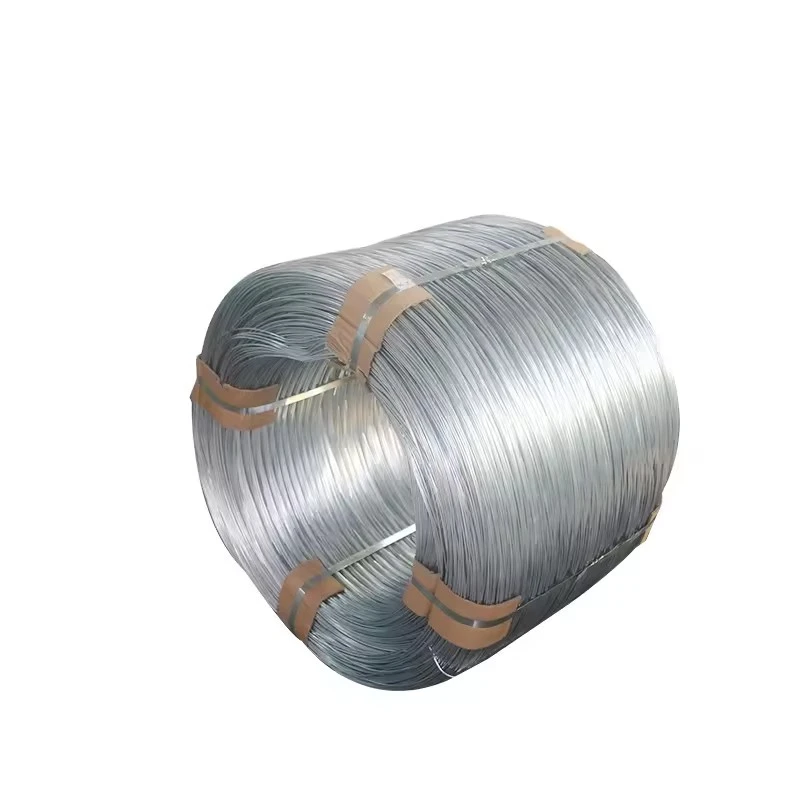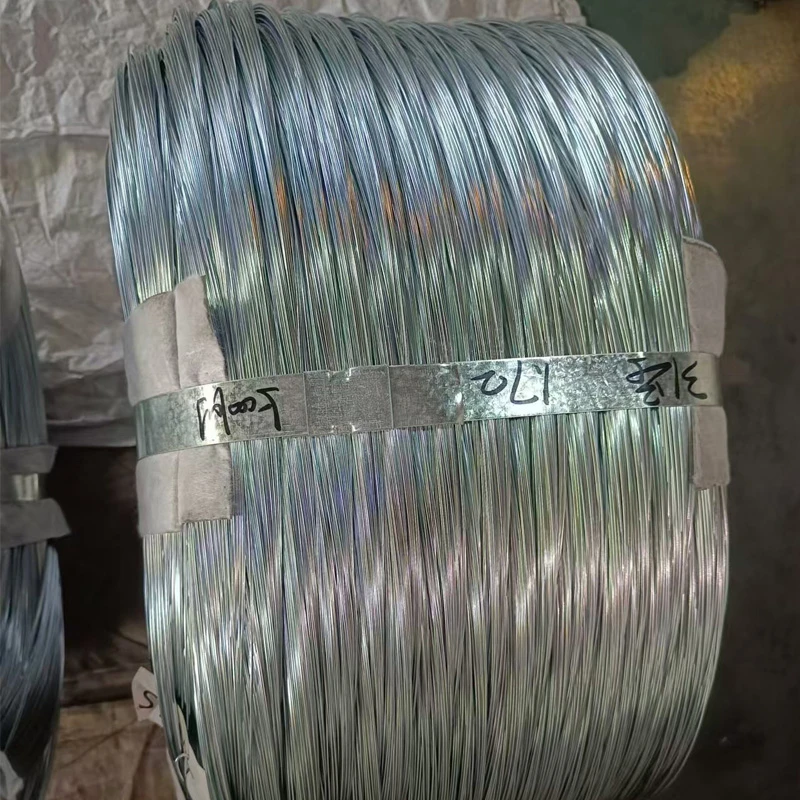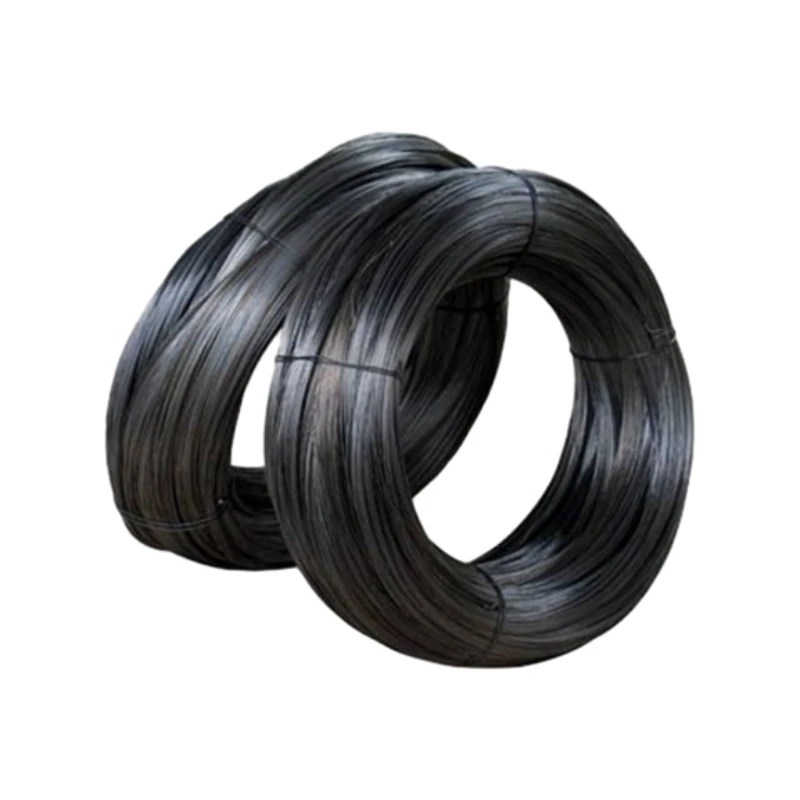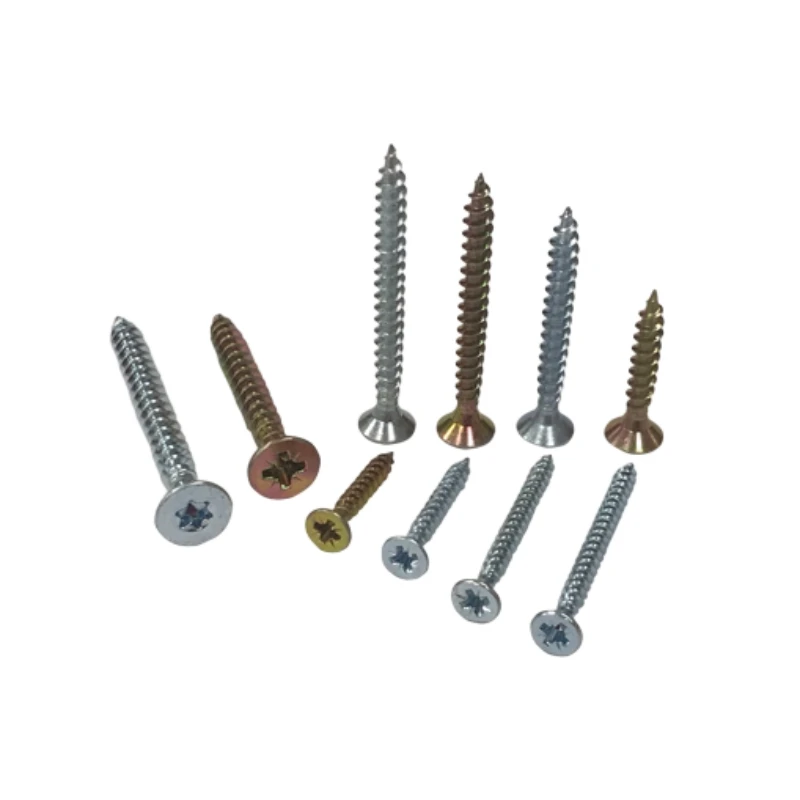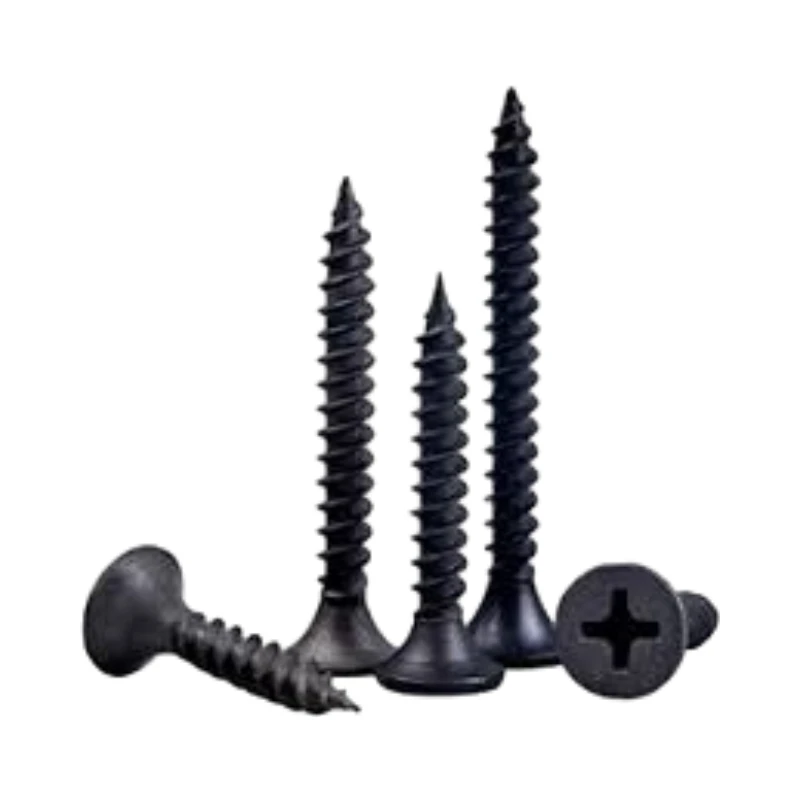
Talk With Us
+86-13601661296
Email Address
admin@sxjbradnail.comSecure Fine Thread Drywall Screws: Strong Grip for Plasterboard
Understanding the Precision and Performance of Fine Thread Drywall Screws
In the realm of modern construction, the integrity of fastening solutions is paramount. Among the myriad of fasteners available, the fine thread drywall screw stands out as a critical component, engineered for specific applications demanding superior pull-out resistance and reduced material splitting. This specialized fastener, often characterized by its trumpet-shaped head and needle tip, is meticulously designed to create a secure and flush finish in gypsum plasterboard installations, particularly when fastening to metal studs.
This comprehensive guide delves into the technical intricacies, application advantages, and market dynamics surrounding these essential construction elements, providing B2B professionals with the insights necessary for informed procurement and successful project execution.
Industry Trends and Market Evolution in Drywall Fasteners
The construction industry is continually evolving, driven by demands for increased efficiency, sustainability, and enhanced structural performance. For drywall fasteners, this translates into several key trends:
- Advanced Coatings: There's a growing preference for screws with specialized coatings (e.g., black phosphate, zinc, ceramic) that offer superior corrosion resistance and extend service life, especially in humid or corrosive environments.
- Sustainable Manufacturing: Manufacturers are increasingly adopting eco-friendly production processes, reducing waste, and utilizing recycled content where feasible, aligning with global green building initiatives.
- Ergonomic Design: Innovations in drive types (e.g., improved Phillips head designs, square drives, Torx) aim to minimize cam-out, improving installation speed and reducing worker fatigue. The standard PH Cross Drive remains highly prevalent for drywall applications due to its widespread tool compatibility.
- Specialized Applications: The market is seeing greater segmentation, with demand for highly specialized fasteners like the fine thread drywall screw specifically optimized for metal stud applications, offering superior thread engagement compared to coarse thread alternatives.
- Performance Standards: Stringent adherence to international standards (e.g., ASTM C1002, EN 14566) is becoming non-negotiable, ensuring product reliability and safety across diverse projects.
These trends underscore a market that values precision engineering and robust performance, making the selection of high-quality fasteners like the fine thread drywall screw a critical decision for project success.
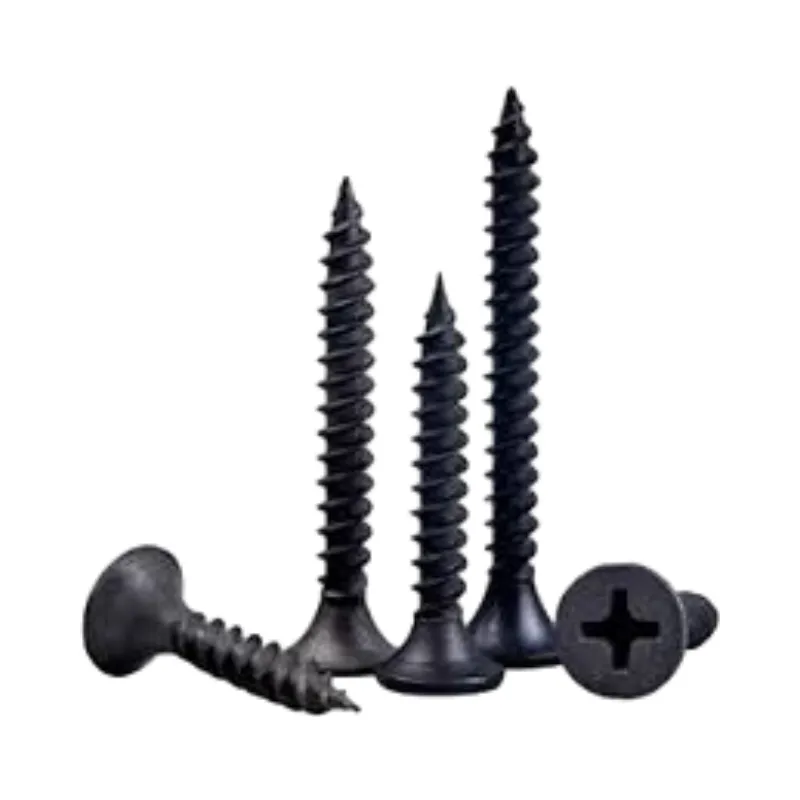
Technical Specifications: The Gypsum Plasterboard Screw With Trumpet Shape Head, Fine Thread, Needle Tip And Ph Cross Drive
The design of a fine thread drywall screw is optimized for specific performance characteristics. Our flagship product, "The Gypsum Plasterboard Screw With Trumpet Shape Head, Fine Thread, Needle Tip And Ph Cross Drive," exemplifies this precision engineering. Its characteristics are tailored for robust engagement and seamless integration:
- Trumpet Shape Head: This unique head design allows the screw to countersink flush with the drywall surface without tearing the paper, creating a smooth finish ideal for subsequent finishing processes like taping and mudding.
- Fine Thread: The finer threads provide superior grip and increased pull-out resistance when fastening into light-gauge metal studs (typically 20-25 gauge). The dense thread pattern ensures a strong mechanical bond, minimizing stripping in metal. For example, a common size like a 1 1/4 fine thread drywall screw is ideal for standard drywall thicknesses on metal frames.
- Needle Tip: The sharp, pointed tip allows for quick penetration into gypsum board and metal studs, reducing the need for pre-drilling and accelerating installation time.
- PH Cross Drive (Phillips Head): This widely adopted drive type ensures compatibility with standard power tools, providing efficient torque transfer and reducing cam-out during high-volume installations.
- Material: Typically manufactured from hardened carbon steel, offering excellent strength and durability.
- Surface Treatment: Common treatments include black phosphate or zinc plating, which provide a degree of corrosion resistance and prepare the surface for various finishing compounds.
Product Specification Table: Fine Thread Drywall Screws
| Parameter | Specification |
|---|---|
| Product Name | The Gypsum Plasterboard Screw With Trumpet Shape Head, Fine Thread, Needle Tip And Ph Cross Drive |
| Material | High-Quality Carbon Steel (C1022 or equivalent) |
| Thread Type | Fine Thread (full thread) |
| Head Type | Trumpet Head |
| Drive Type | Phillips (PH2) |
| Point Type | Needle Point / Sharp Point |
| Diameters (Common) | #6 (3.5mm), #7 (3.9mm), #8 (4.2mm) |
| Lengths (Common) | 1" (25mm) to 3" (75mm), including 1 1/4 fine thread drywall screws |
| Surface Treatment | Black Phosphate, Zinc Plated (Yellow/Blue/White) |
| Standards | ASTM C1002, DIN 18182, EN 14566 |
These precise specifications ensure that each fine thread drywall screw delivers consistent, reliable performance in demanding construction applications.
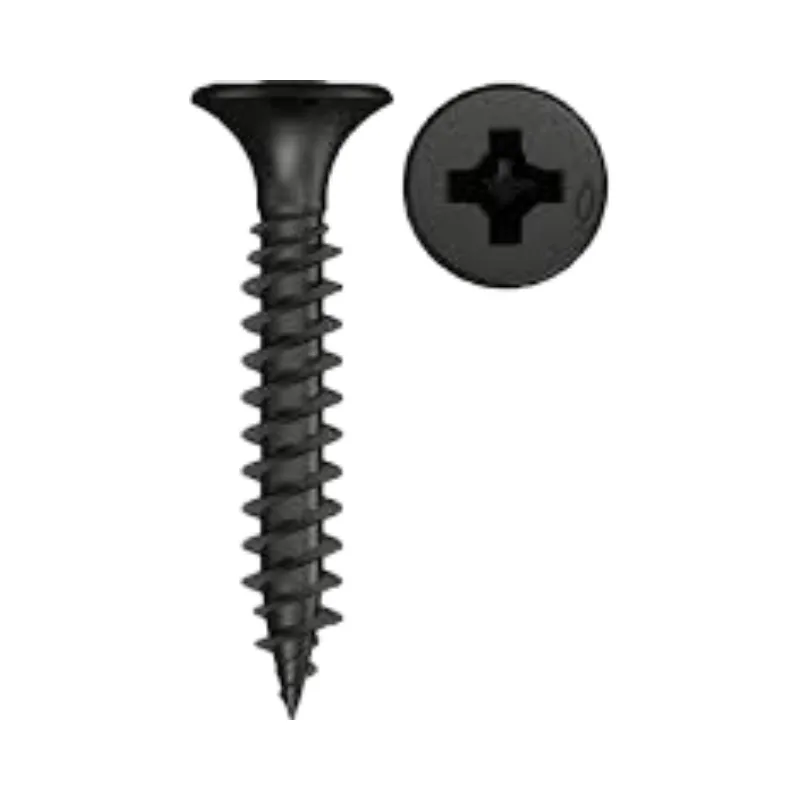
Manufacturing Process: From Wire Rod to Finished Fastener
The production of a high-quality fine thread drywall screw is a multi-stage, precision-controlled process, ensuring each fastener meets stringent performance and durability standards. Here’s a detailed overview of the manufacturing flow:
- Wire Rod Preparation: The process begins with high-carbon steel wire rod (typically SAE 1022 or equivalent). This raw material undergoes descaling and surface treatment to remove impurities and prepare it for drawing.
- Wire Drawing: The wire rod is drawn through a series of dies to reduce its diameter to the specific gauge required for the screw (e.g., for a 6 fine thread screw). This process cold-works the steel, enhancing its tensile strength and hardness.
- Cold Heading (Forming the Head and Point): The drawn wire is fed into a cold heading machine. Here, a series of dies and punches rapidly cut the wire to length, form the trumpet-shaped head, and create the needle point. Cold heading is a highly efficient process that maintains the material’s grain structure, leading to stronger parts compared to machining.
- Thread Rolling: After heading, the unthreaded screw blanks are transferred to a thread rolling machine. Two dies, one stationary and one moving, press and roll the blank, forming the fine threads. This method creates threads by displacing material rather than cutting it, resulting in stronger, more precise threads with improved fatigue resistance.
- Heat Treatment (Hardening and Tempering): The screws undergo a rigorous heat treatment process. This involves heating the screws to an elevated temperature (hardening) and then rapidly cooling them (quenching) to achieve a high level of hardness. Subsequently, they are tempered at a lower temperature to reduce brittleness and improve toughness, optimizing the balance between strength and ductility. This step is crucial for the screw's ability to resist snapping during installation and withstand loads in service.
- Surface Treatment (Coating): Post-heat treatment, the screws receive their protective coating. Common treatments include:
- Black Phosphate: Provides mild corrosion resistance and a matte black finish that blends seamlessly with drywall compounds. It also enhances paint adhesion.
- Zinc Plating: Offers superior corrosion resistance compared to black phosphate, available in various chromates (yellow, blue, white) for different aesthetic and protective properties.
- Quality Control and Testing: Throughout the entire manufacturing process, rigorous quality control checks are performed. This includes visual inspections, dimensional measurements, and mechanical testing. Key tests include:
- Hardness Testing: (e.g., Rockwell C scale) to ensure optimal material hardness after heat treatment.
- Tensile Strength Testing: To verify the screw's resistance to breaking under tension.
- Torque Testing: To ensure the screw can withstand installation torque without breaking or stripping the drive.
- Pull-Out Strength Testing: Crucial for drywall screws, measuring the force required to pull the screw out of the substrate (e.g., gypsum board into metal stud).
- Salt Spray Testing: For coated screws, evaluating corrosion resistance according to standards like ASTM B117.
- Packaging: Finally, the finished fine thread drywall screw products are counted, packaged, and prepared for distribution.
This stringent manufacturing protocol, from material selection to final quality assurance, ensures that each fine thread drywall screw delivers reliable performance and a long service life, typically exceeding 50 years in non-corrosive indoor applications when installed correctly.
Target Industries and Advantages:
- Target Industries: Primarily commercial and residential construction, drywall installation contractors, modular building manufacturers, and interior fit-out specialists.
- Energy Saving: By facilitating rapid, secure installation, these screws contribute to faster project completion, reducing labor costs and overall energy consumption on job sites.
- Corrosion Resistance: Specialized coatings (e.g., zinc plating) provide enhanced resistance, extending the fastener's life in environments with fluctuating humidity.
- Structural Integrity: The superior grip of fine threads in metal studs ensures long-term structural stability of drywall assemblies, reducing maintenance needs.
Application Scenarios and Technical Advantages
The specific design features of a fine thread drywall screw make it the optimal choice for several critical applications, offering distinct technical advantages over other fastener types.
Primary Application Scenarios:
- Drywall to Metal Stud Framing: This is the quintessential application. The fine threads bite securely into light-gauge metal studs (typically 20-25 gauge), providing a strong, vibration-resistant connection without stripping the thin metal. A 1 1/4 fine thread drywall screw is a standard choice for single-layer 1/2-inch or 5/8-inch drywall on metal studs.
- Acoustic Drywall Systems: In applications requiring sound dampening, where multiple layers of drywall are used or specialized acoustic panels are installed, the reliable grip of fine thread drywall screw is crucial for maintaining system integrity.
- Commercial Interiors: Office buildings, retail spaces, hospitals, and educational facilities frequently utilize metal stud framing due to its non-combustible properties and ease of installation. Here, the precision and reliability of the fine thread drywall screw ensure robust, long-lasting partitions and ceilings.
- Prefabricated Modular Construction: In off-site manufacturing of modular units, consistent and high-strength fastening is essential. Fine thread screws provide the necessary rigidity and pull-out resistance for components that will undergo transportation and on-site assembly.
Key Technical Advantages:
- Superior Grip in Metal: The high number of threads per inch on a fine thread screw creates more points of contact within the thin metal of a stud, resulting in significantly higher pull-out and shear resistance compared to coarse thread screws. This prevents fasteners from loosening over time, even with structural movement or vibrations.
- Reduced Stripping: Coarse thread screws can easily strip the thin gauge metal of studs if over-driven. The finer threads engage more gradually and securely, minimizing stripping and ensuring a solid connection on the first attempt, which saves material and labor.
- Flush Finish: The trumpet head design consistently sinks below the drywall surface without tearing the paper facing, creating a smooth finish that simplifies subsequent finishing processes. This is critical for achieving a level 5 drywall finish.
- Rapid Penetration: The needle point is engineered for quick, clean entry through drywall and into metal studs, reducing installation time and effort, especially with high-speed screw guns.
- Enhanced Structural Integrity: By forming a consistently strong bond between the drywall and metal framing, fine thread screws contribute to the overall structural integrity of the wall or ceiling assembly, enhancing its resistance to impact and deformation.
- Versatility in Gauges: While optimized for light-gauge metal, the performance of a 6 fine thread screw can also be effective in various metal thickness applications within its design limits.
Fine Thread vs. Coarse Thread Drywall Screws: A Comparison
| Feature | Fine Thread Drywall Screw | Coarse Thread Drywall Screw |
|---|---|---|
| Primary Substrate | Light-gauge metal studs (20-25 gauge) | Wood studs |
| Thread Count | Higher (more threads per inch) | Lower (fewer, wider threads per inch) |
| Grip in Substrate | Excellent in metal, minimizes stripping | Excellent in wood, bites aggressively |
| Pull-Out Resistance | Superior in metal studs | Strong in wood studs |
| Installation Speed | Fast, but requires precise torque control for metal | Very fast, aggressive bite in wood |
| Risk of Stripping | Lower in metal studs if driven correctly | Higher in wood if over-driven (can split wood) |
This comparison highlights why selecting the correct thread type is crucial for optimal performance and structural integrity in different framing materials.

Vendor Comparison and Customized Solutions
When sourcing fine thread drywall screw products, B2B decision-makers must evaluate vendors beyond just price. A holistic assessment considers product quality, manufacturing capabilities, adherence to standards, and service offerings.
Key Factors for Vendor Evaluation:
- Certifications: Verify international certifications like ISO 9001 (Quality Management System) and relevant product-specific standards (e.g., ASTM C1002, EN 14566). These demonstrate a commitment to quality and regulatory compliance.
- Material Traceability: Reputable vendors provide full traceability of raw materials, ensuring consistent quality from source to finished product.
- Testing and QC: Inquire about their in-house testing protocols, including hardness, tensile strength, torque, and pull-out tests.
- Manufacturing Capacity: Assess their ability to meet your volume requirements, including lead times and surge capacity.
- Customer Support & Technical Expertise: A vendor's ability to offer technical advice, address queries promptly, and provide after-sales support is invaluable.
- Experience and Reputation: Look for vendors with a proven track record, positive customer feedback, and long-standing industry presence. Our company, with significant years of service in the fastening industry, prides itself on consistent quality and client satisfaction.
Customized Solutions for Specialized Projects:
While standard fine thread drywall screw options cover most applications, certain projects may require tailored solutions. A reliable manufacturer should offer customization in areas such as:
- Specialized Coatings: Beyond standard black phosphate and zinc, options like ceramic coatings for enhanced corrosion resistance or colored coatings for aesthetic integration can be developed.
- Unique Dimensions: While 1 1/4 fine thread drywall screws are common, projects may demand specific lengths or diameters outside standard offerings, such as a longer 6 fine thread screw for multi-layer drywall.
- Alternative Materials: For highly corrosive or extreme temperature environments, screws can be manufactured from stainless steel alloys, though this alters the typical application profile for drywall.
- Packaging: Custom packaging options, including bulk, collated strips for auto-feed systems, or specific box quantities, can optimize workflow on large projects.
- Drive Types: While PH Cross Drive is standard, other drive systems (e.g., Square, Torx) can be accommodated for specific tooling requirements.
Engaging with a manufacturer that possesses both the technical expertise and the production flexibility to provide customized solutions ensures that even the most unique project requirements for fine thread drywall screw are met with precision.
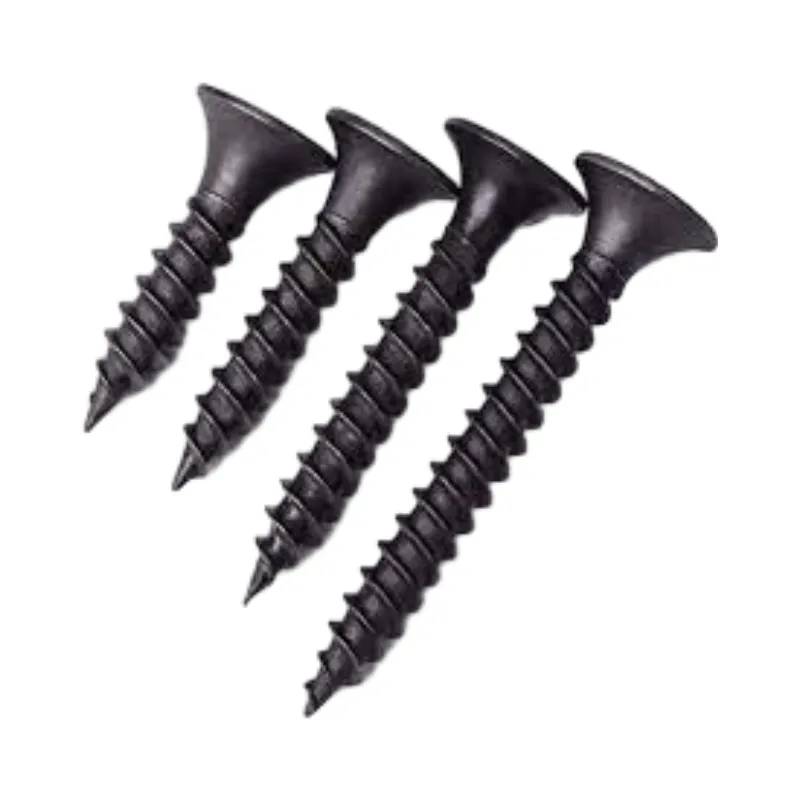
Application Case Studies and Customer Experience
Case Study 1: Large-Scale Commercial Office Development
Client: A leading commercial construction firm specializing in high-rise office buildings.
Challenge: The project required the installation of over 100,000 square meters of drywall onto light-gauge metal studs across multiple floors. The client needed a fastener that offered rapid installation, superior pull-out strength, and a consistent flush finish to meet tight deadlines and high aesthetic standards.
Solution: We supplied millions of 1 1/4 fine thread drywall screws with a black phosphate finish. Our technical team provided on-site support to ensure optimal installation practices were followed.
Outcome: The fine thread design minimized stripping in the metal studs, significantly reducing rework and material waste. The trumpet heads consistently achieved a flush finish, streamlining the finishing process. The client reported a 15% improvement in installation speed compared to previous projects using generic fasteners, directly contributing to meeting the accelerated project schedule. Customer feedback highlighted the consistent quality and reliability of the screws, which significantly enhanced their operational efficiency.
Case Study 2: Modular Hospital Construction for Rapid Deployment
Client: A specialized manufacturer of modular healthcare facilities, requiring high-strength, vibration-resistant fasteners for pre-fabricated wall and ceiling panels.
Challenge: Modular units undergo significant stress during transportation and on-site assembly. The fasteners needed to maintain structural integrity under dynamic loads and ensure long-term stability in a critical environment.
Solution: We provided custom-length fine thread drywall screw (specific to multi-layer panel thickness) with an enhanced zinc-plated finish for added environmental durability. These were supplied in specific quantities suitable for their automated fastening lines.
Outcome: The enhanced grip of the fine thread screws proved invaluable, securing multi-layer gypsum panels firmly to the metal frames, preventing any loosening or cracking during transport and installation. The client specifically praised the consistent thread quality and the enhanced coating which met their stringent healthcare facility standards. The project’s success, with rapid deployment and zero fastener-related failures, underscored the critical role of high-quality fine thread drywall screw in modern modular construction.
Trustworthiness: FAQ, Lead Time, Warranty, and Support
Establishing trust is fundamental in B2B partnerships. Our commitment to transparency, reliability, and robust customer support ensures peace of mind for our clients.
Frequently Asked Questions (FAQ):
- Q: What makes a fine thread drywall screw different from a coarse thread?
A: Fine thread screws have more threads per inch, designed for superior grip in light-gauge metal studs (e.g., 20-25 gauge). Coarse thread screws have fewer, wider threads, optimized for fastening into wood studs. - Q: Can I use a fine thread drywall screw in wood studs?
A: While technically possible, it is not recommended. Fine threads do not grip wood as effectively as coarse threads, increasing the risk of stripping or inadequate holding power. Always match the screw thread type to the framing material. - Q: What is the typical lead time for large orders of drywall screws?
A: Standard orders typically have a lead time of 2-4 weeks, depending on volume and current production schedules. For customized orders or very large quantities, lead times will be provided upon specific inquiry and order confirmation. We strive to maintain efficient production to minimize delays. - Q: What are the best practices for storing drywall screws?
A: Screws should be stored in a dry, temperate environment, preferably in their original packaging, to prevent moisture exposure and potential corrosion, especially for black phosphate coated screws. - Q: Are your screws compliant with international building codes?
A: Yes, our fine thread drywall screw products are manufactured to meet or exceed relevant international standards such as ASTM C1002, DIN 18182, and EN 14566, making them suitable for use in projects adhering to various global building codes.
Lead Time and Fulfillment:
We understand the critical nature of project timelines. Our robust supply chain and efficient manufacturing processes allow us to offer competitive lead times. For standard stock items, dispatch is typically within 7-10 business days. For larger volume orders or custom specifications, a detailed fulfillment schedule will be provided, generally ranging from 2-5 weeks. We pride ourselves on transparent communication regarding order status and delivery estimates.
Warranty Commitments:
All our fine thread drywall screw products come with a comprehensive warranty against manufacturing defects and material failures under normal installation and use conditions. Specific warranty details, including duration and coverage, are provided with each order, ensuring that our clients receive products that meet the highest quality and performance standards.
Customer Support Information:
Our dedicated customer support team is available to assist with technical queries, order tracking, and any post-purchase support. We offer multi-channel communication options including phone, email, and a dedicated client portal to ensure prompt and efficient resolution of any concerns. Our goal is to forge lasting partnerships by providing exceptional product quality backed by unparalleled service.
Conclusion
The fine thread drywall screw is more than just a fastener; it is a precisely engineered component vital for the structural integrity and aesthetic finish of modern drywall installations on metal framing. Its specialized design, rigorous manufacturing process, and adherence to international standards underscore its critical role in delivering high-quality, durable construction projects. By understanding its technical advantages and partnering with a reputable vendor committed to quality and service, B2B professionals can ensure optimal performance and long-term reliability in their fastening solutions.
References
- American Society for Testing and Materials. (2020). ASTM C1002/C1002M-18: Standard Specification for Steel Drill Screws for the Application of Gypsum Panel Products or Metal Plaster Bases to Steel Studs from 0.033 in. (0.84 mm) to 0.112 in. (2.84 mm) in Thickness. ASTM International.
- International Organization for Standardization. (2015). ISO 9001:2015: Quality management systems – Requirements. ISO.
- European Committee for Standardization. (2015). EN 14566:2008+A1:2009: Gypsum board screws — Definitions, requirements and test methods. CEN.
- Drywall Handbook. (2023). Fastener Selection Guide: Fine vs. Coarse Thread Drywall Screws. [Industry Publication].
-
Durable and Reliable SS Brad Nails for Every ApplicationNewsNov.20,2025
-
Masonry Brad Nails: Durable Fastening Solutions for Modern ConstructionNewsNov.19,2025
-
Hot Dipped Galvanized Brad Nails – Ultimate Guide for Durable Construction FastenersNewsNov.19,2025
-
Durable and Cost-Efficient Galvanized Brads: Your Essential Fastening SolutionNewsNov.18,2025
-
Galvanized Brad Nails for Treated Lumber — Durable Fastening Solutions for Lasting BuildsNewsNov.18,2025
-
Durable and Cost-Effective Galvanised Brads for Construction & CraftingNewsNov.17,2025

